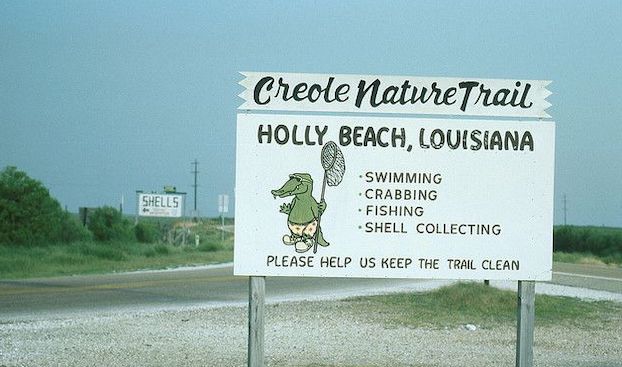Before heading to the beach check advisories, keep eye out for jellyfish
Published 9:29 am Tuesday, July 18, 2023

- (Special to the American Press)
Before heading out to one of Southwest Louisiana beaches, be prepared. In addition to following swimming safety guidelines and using sunscreen, hat, shades, swim shoes and drinking plenty of water, consider checking beach swimming advisories online at https://gov/page. Observe advisories posted at the beach and keep an eye out for jellyfish.
As the oceans warm, jellyfish and Portuguese Man O’War (an iridescent hued jelly-fish look-alike) are expanding their habitat.
What some folks have been told to do or have heard others have done – urinate on a jellyfish sting – isn’t a help, and it could make the sting hurt more. The salt, electrolytes and other compounds can aggravate stinging cells.
The acetic acid in commercial vinegar could alleviate pain and prevent the release of more venom, according to a study published in the Medical Journal of Australia.
Applying ice is a no-no. It closes pores, as does very cold water. Jumping in a hot shower or in a warm jacuzzi may be the best strategy. Consider taking a gallon of water and letting the sun warm it just as a precaution. The seawater for rinsing is preferable to ice and cold water.
“Contact with a jellyfish tentacle can leave nematocysts that have not been triggered on the surface of your skin,” writes Susanne Masters in the online article from The Outdoor Swimming Society, Taking the Sting Out of Swimming with Jellyfish. “So the first step in treating jellyfish stings is to remove nematocysts from the surface of your skin without triggering them to release their stinging chemicals.”
Tweezers are best for removing these cells. Masters said a credit card edge might help. After ensuring all stinging cells have been removed, apply hydrocortisone cream or ointment twice a day.
The Louisiana Department of Health Beach Monitoring collects water samples weekly during Louisiana’s beach season between May and October, analyzing the water for enterococci bacteria. These bacteria represent those commonly found in sewage pollution, and which could cause disease, infections or rashes.
LDH tests water at 23 beach sites along the Louisiana coast for enterococci, which generally grow at temperatures between 90 and 113 degrees fahrenheit. Rainfall and salinity may contribute to bacteria counts.
That includes Lake Charles North Beach – the only white-sand inland beach from Texas to Florida. (The beach at Golden Nugget is not monitored, according to the Louisiana Department of Health because the Golden Nugget has not requested it be monitored.)
In Cameron Parish, the beaches monitored are Little Florida, Constance Beach, Long Beach, Martin Beach, Holly Beach (six sites) and Rutherford Beach.
Beach advisories are lifted once the EPA criteria have been met for recreational waters.
The State Health Officer recommends persons who have a chronic illness such as liver disease, kidney disease, cancer, women who may become pregnant or are pregnant, people with an open wound/cut or have a compromised immune system to take extra precautions before coming into contact with beach water. If anyone has concerns about his/her health, they should contact their health care provider.




